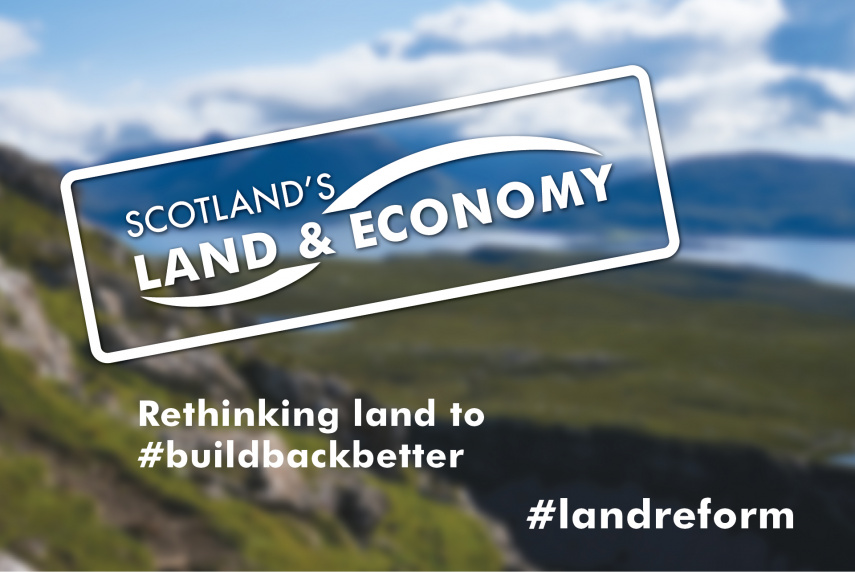
Making Scotland’s land work for recovery and renewal
Hamish Trench

Over the coming months we will be publishing a series of blogs, events and discussions exploring the fundamental role of land in achieving Scotland’s post-pandemic recovery and renewal.
In the first blog, Scottish Land Commission Chief Executive, Hamish Trench summarises the Commission’s submission to the Scottish Government’s Advisory Group on Economic Recovery and the need to rethink the way we own, manage and use land to create a “robust, resilient wellbeing economy”.
Now, more than ever, we need to make the most of our land. Even before COVID-19, Scotland has started leading a shift to a wellbeing economy – one that seeks to build in from the start a fair distribution of wealth, health and power, enabling all to participate and benefit. To reduce inequality and rebuild a dynamic economy, recovery plans need to be a point of acceleration for the reforms and changes needed.
Land matters in this simply because we all need and use it. Land underpins our economy – as the economist’s three-way focus on ‘land, labour and capital’ suggests. It matters in practical ways, meeting our housing need, dealing with that vacant site in the heart of your community, meeting our climate targets, or simply giving people the means and confidence to build businesses and functioning communities.
The way we organise land rights, both in ownership and use, is significant in determining the distribution of power, resources and opportunities across much of the economy. Modernised land ownership can unlock investment, diversity and innovation, building a resilient economy. This includes diversifying rural land ownership to stimulate more beneficial use, as well as reforms in urban Scotland to bring sites back into productive use.
The track record of regeneration where communities have stepped in to take ownership speaks for itself. We know what is needed to normalise this across the country. But we must also explore new governance models that will widen the benefits and increase the investment into land to deliver broader public value. Our work on Scotland’s Common Good Land, for example, points to reforms that could readily help underpin more resilient local ownership in towns and cities.
As well as reshaping these systems, land reforms should be ready to address some of the potential economic consequences of the pandemic. Changes in demand for office space, shopping patterns and business closures could inadvertently create a new legacy of vacant property. We have been here before of course, when a previous economic restructuring left a persistent legacy of derelict industrial sites in Scotland’s most disadvantaged communities that we are still trying to tackle now.
There are many lessons from this history that should inform our action now. We’ve seen in similar circumstances land being acquired by speculative investors who are passive rather than active owners, blocking opportunities to drive regeneration. This need not be inevitable.
The Scottish Land Commission will focus on generating the debate, analysis and ideas needed to drive reforms. Our ‘Scotland’s Land and Economy’ series will bring together leading thinkers in a range of areas and I encourage you to follow and take part in the discussions. We will need to rethink approaches across measures such as land assembly for development, tax reforms, community-led regeneration and what responsible land ownership looks like.
Fresh thinking is needed to accelerate reforms to land markets in order to stimulate activity, release capital for productive investment and benefit more people. Of course, not all of this need wait for future legislation – there is much that we can all do now through leadership and a commitment to responsible land ownership and use.